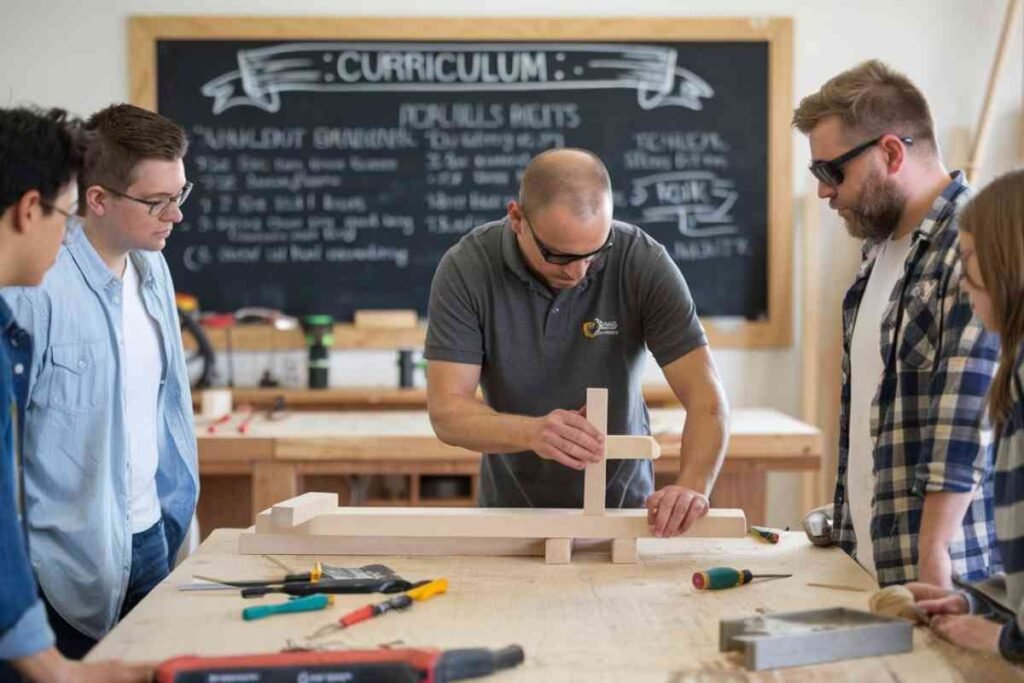In the heart of California, Folsom City has long been known for its rich history and vibrant community. Among its many offerings, the Folsom City Vocational Education Program stands out as a vital resource for residents seeking to develop practical skills and enhance their career prospects. One of the program’s most popular tracks is its woodworking classes, which provide students with hands-on experience, expert instruction, and a creative outlet. This article explores the importance of woodworking education, the structure of the Folsom program, and the myriad benefits of participating in these classes.
The Importance of Vocational Education
Vocational education plays a crucial role in equipping individuals with the skills needed for various trades and professions. In a rapidly evolving job market, traditional college degrees are not the only path to success. Many industries, including construction, manufacturing, and design, increasingly seek skilled tradespeople who possess specialized knowledge. Woodworking, in particular, is a timeless skill that combines artistry with practical application, making it a valuable asset in numerous fields.
Skills for the Future
The woodworking classes offered by Folsom City provide students with foundational skills that are applicable in both personal projects and professional careers. Participants learn how to operate various tools and machinery, understand material properties, and apply design principles. These skills not only prepare students for immediate job opportunities but also instill a sense of confidence and creativity that can benefit them in various aspects of life.
Overview of the Folsom City Woodworking Program
The Folsom City Vocational Education Program is designed to cater to a diverse group of learners, from beginners to those with some experience. The woodworking classes are structured to provide a comprehensive education that covers safety, technique, and design.
Class Structure and Curriculum
- Introductory Courses: Beginners start with foundational classes that cover basic woodworking techniques, safety protocols, and an introduction to tools. These courses typically focus on small projects that help students build confidence and skill.
- Intermediate and Advanced Courses: For those who have mastered the basics, intermediate and advanced classes delve deeper into complex techniques, such as joinery, cabinetry, and furniture design. These courses often encourage students to develop their projects, allowing for creative expression while honing their skills.
- Specialty Workshops: The program also offers specialty workshops that focus on specific aspects of woodworking, such as wood carving, finishing techniques, or creating outdoor furniture. These workshops allow students to explore particular interests and refine their craftsmanship.
Experienced Instructors
The quality of instruction is a hallmark of the Folsom City woodworking classes. Instructors are often seasoned professionals with years of experience in the woodworking industry. They not only bring expertise but also a passion for teaching, creating an engaging learning environment. Their insights and mentorship can help students navigate challenges and enhance their skills effectively.
Tools and Resources
One of the standout features of the Folsom City woodworking classes is access to a well-equipped workshop. Students can use a variety of tools, from hand tools to advanced machinery, under the guidance of their instructors. The program emphasizes safety and proper tool usage, ensuring that all participants can work confidently and responsibly.
Additionally, students are encouraged to bring their own project ideas, fostering a sense of ownership and creativity. This personalized approach allows learners to explore their interests while receiving constructive feedback from their peers and instructors.
Benefits of Participating in Woodworking Classes
Skill Development
Participants in the Folsom woodworking classes experience significant skill development. Not only do they gain technical abilities, but they also learn problem-solving, project management, and time management skills. These competencies are essential in any trade and can greatly enhance employability.
Creativity and Self-Expression
Woodworking is as much an art as it is a skill. The classes encourage creativity and self-expression, allowing students to bring their unique ideas to life. Whether crafting furniture, decorative items, or functional pieces, students have the opportunity to explore their artistic inclinations in a supportive environment.
Community Building
The Folsom woodworking classes foster a sense of community among participants. Students often collaborate on projects, share ideas, and support each other’s growth. This camaraderie not only enhances the learning experience but also builds lasting friendships and professional networks.
Career Opportunities
Graduates of the woodworking program often find themselves well-prepared for various career paths. Skilled woodworkers are in demand in industries such as construction, interior design, and custom furniture making. The program’s focus on hands-on experience equips students with a portfolio of work that showcases their capabilities to potential employers.
Conclusion
The Folsom City Vocational Education Program’s woodworking classes offer invaluable opportunities for skill development, creativity, and community building. As students engage in hands-on learning under the guidance of experienced instructors, they not only gain practical skills but also foster a lifelong passion for woodworking. In a world where vocational education is increasingly recognized for its importance, Folsom City stands out as a beacon of opportunity for those looking to carve out a successful future in the woodworking trade. Whether for personal satisfaction or professional advancement, the woodworking classes in Folsom provide a solid foundation for anyone eager to explore the art and craft of woodworking.

